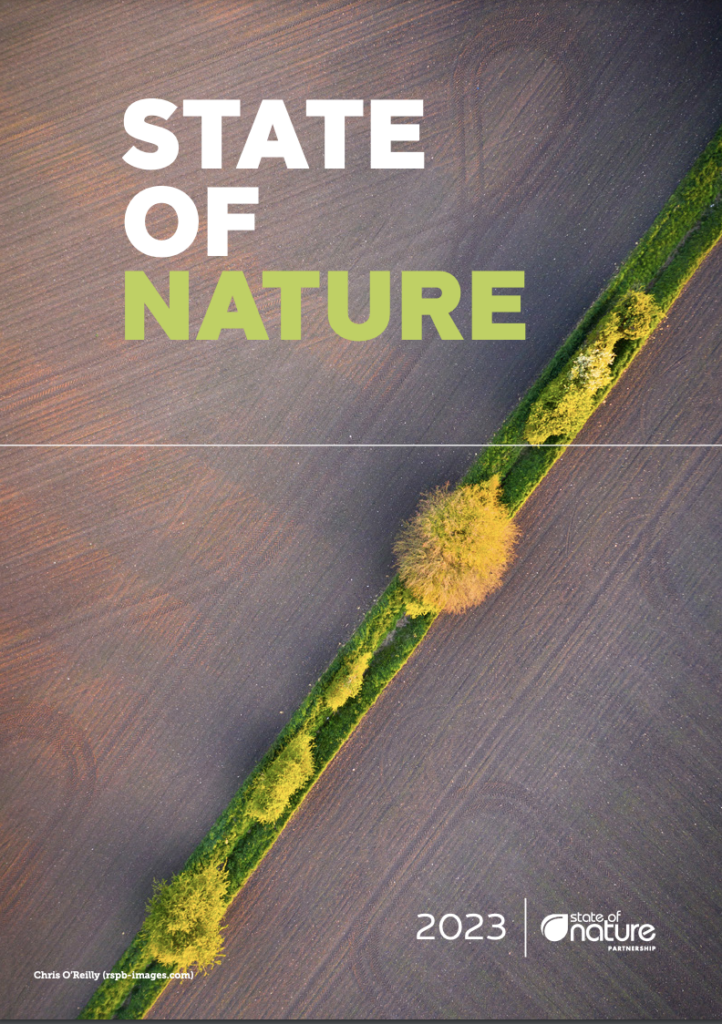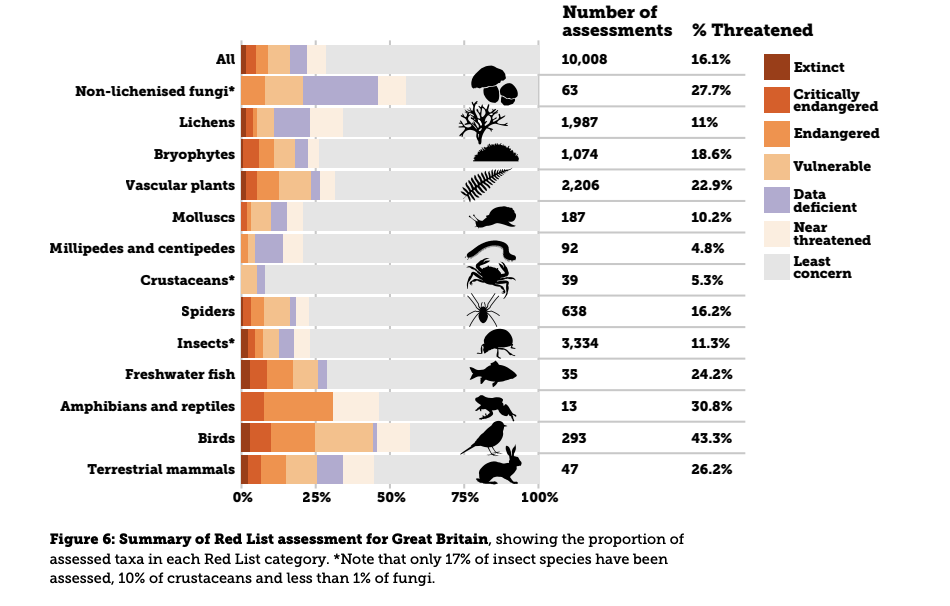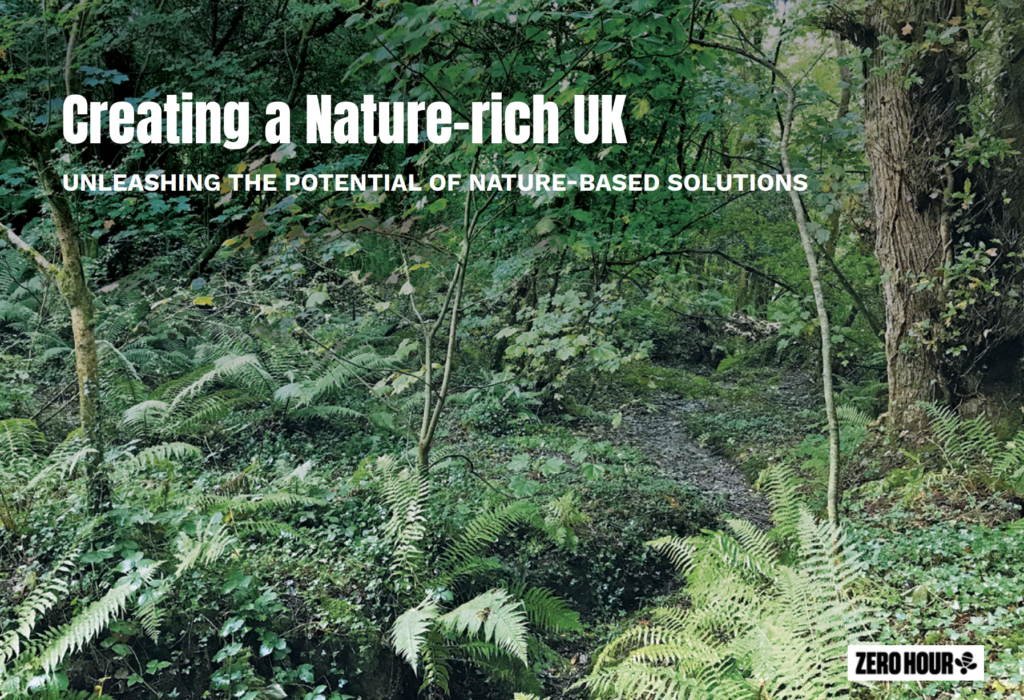The 2023 UK State of Nature Report was published last night, and as the RSPB put it on X (Twitter), it makes for pretty grim reading. The State of Nature Reports are the most comprehensive assessment on the UK’s current biodiversity, based on data from biological monitoring and recording schemes across the country.

As with previous reports, State of Nature 2023 describes drastic – and depressing – declines in the UK’s native biodiversity since the 1970s. Distributions of 54% flowering plant species have decreased across Great Britain, the abundance of 753 terrestrial and freshwater species has dropped an average of 19%, and 58% UK priority species have shown a decline. This isn’t surprising news, but feels especially painful alongside findings that public sector funding for biodiversity conservation has declined 24% over the last five years (declining both in absolute terms and as a percentage of GDP). These species declines come against a backdrop of historic habitat loss and degradation: the report finds that woodland cover in 2022 was only 13%, with approximately half of this comprising non-native trees (particularly conifer plantations) and only 14% priority habitats, 7% woodland, and 25% peatlands assessed to be in good condition. The picture is largely the same in aquatic environments, large areas of the UK seafloor failing to meet Good Environmental Status owing to habitat disturbance from fishing.

But the report doesn’t just provide bad news. It comes with a clear message: we need to halt and reverse biodiversity decline, and we need to do this by not only increasing conservation and restoration efforts, but by tackling the drivers of biodiversity loss, especially with regard to the UK’s food system – both consumption and production. 71% of the UK’s land is managed by farmers and other land managers, and historic management has resulted in widespread biodiversity loss. It is clear that if we are to bend the curve on nature loss, we need to change the way we feed ourselves and manage our land. Some progress has been made to this end: the UK Government and devolved administrations have launched several new initiatives encouraging better farming practices – generically known as Agri-Environment Schemes (AES) – such as the reimplemented Countryside Stewardship programme and new Sustainable Farming Incentive and Landscape Recovery schemes. Whilst only a few of these schemes can truly be considered nature-friendly farming, a fifth of farmland is now in agri-environment schemes, and there is strong evidence that well-targeted and evidenced schemes can increase the abundance of several species. In essence, we know ways in which we can do better.
And we’ve managed to do better in some instances. One example highlighted in the report is the conservation of several epiphytic bryophyte species thanks to Government action to address pollution levels. The EU National Emissions Ceiling Directive compelled the UK to reduce levels of sulphur dioxide in the atmosphere, and this action is heralded as an important contributor to the population recoveries of several bryophyte species (vital for maintaining the health of ecosystems) since 1995, including the Wood Bristle Moss which has experienced a range increase of 1699 hectads (10×10 km). RSPB’s Hope Farm has trialled diversified crop rotation and conversion of 10% of its formerly cropped land to support nature, resulting in food energy production only dropping to 90.4% of previous levels whilst breeding bird populations increased 177% and GHG emissions dropped by 9.4%. Environmental organisations have shown that it is possible, both logistically and economically, to create a better future for people and nature. We highlighted what that better future for people and nature could look like in our latest report, “Creating a nature-rich UK”.
But this future will remain a pipedream unless the Government adopts ambitious legislation backed up by meaningful action. The Climate and Nature (CAN) Bill is the only proposed legislation before the UK Parliament that ensures a comprehensive and joined-up approach to the climate and biodiversity crises, and is vital if we are to address the full extent of nature loss in the UK.
We need to see bold, joined up steps made by the Department for Agriculture and Rural Affairs (DEFRA), along with the the Treasury and departments responsible for energy and net zero, business and international trade – with a whole food system approach – to rise to the challenge and spearhead change for people today and for a prosperous and equitable future. Amidst a swathe of backtracking and delays of environmental legislation, true leadership is needed if we are to one day have a State of Nature report celebrating the country’s biodiversity rather than mourning it.
The report summary ends with a poignant quote: “We have never had a better understanding of the State of Nature and what is needed to fix it.”
That’s why Zero Hour will be joining Chris Packham’s Restore Nature Now rally outside of DEFRA’s HQ today (28th Sept 2023) to make it clear to the Government that we demand change, now.
We demand a brighter future. We demand a healthy environment. We demand a better state of nature, for ourselves and all those yet to come.



